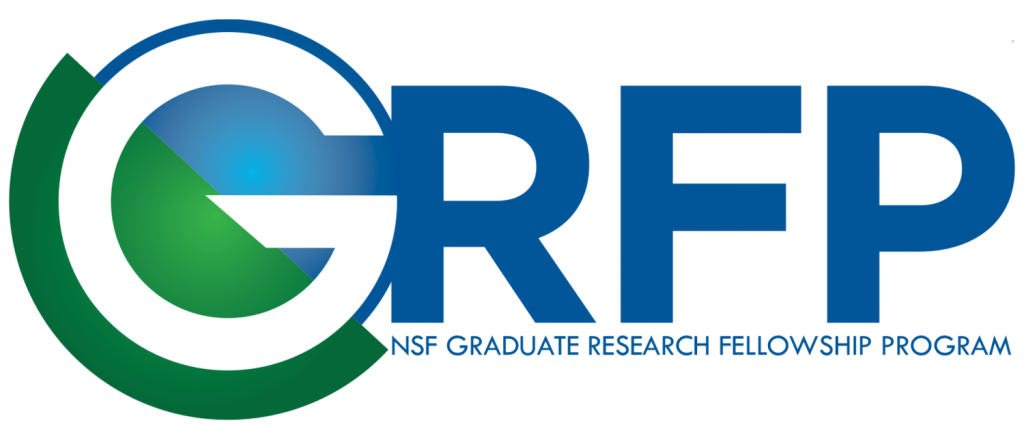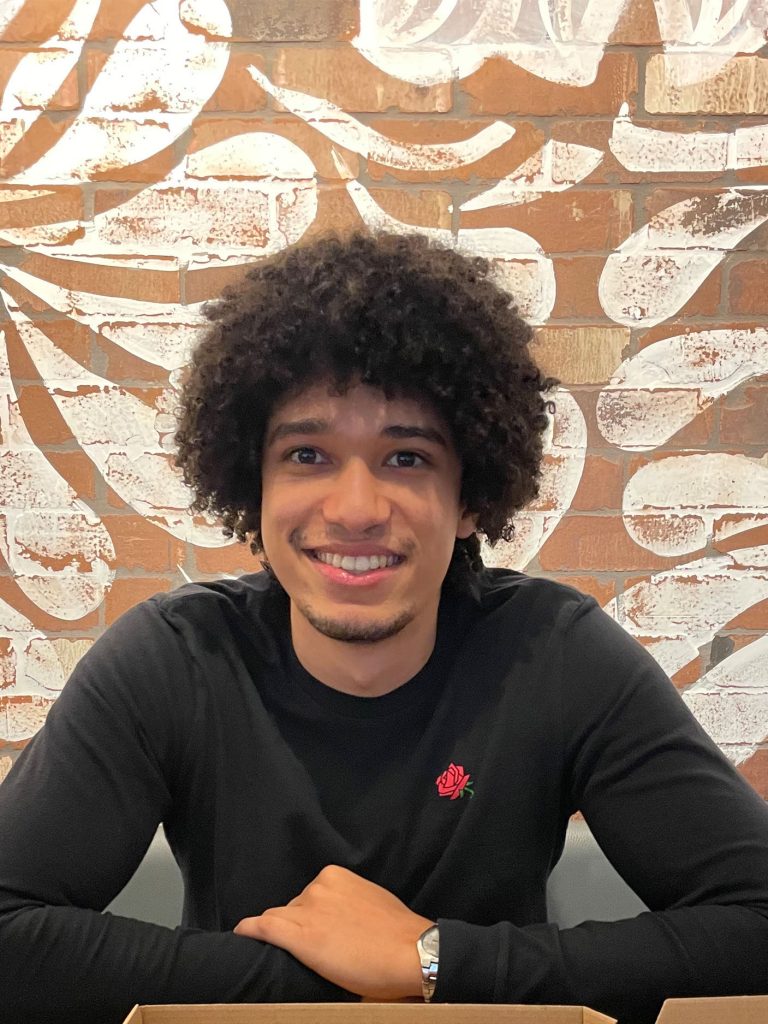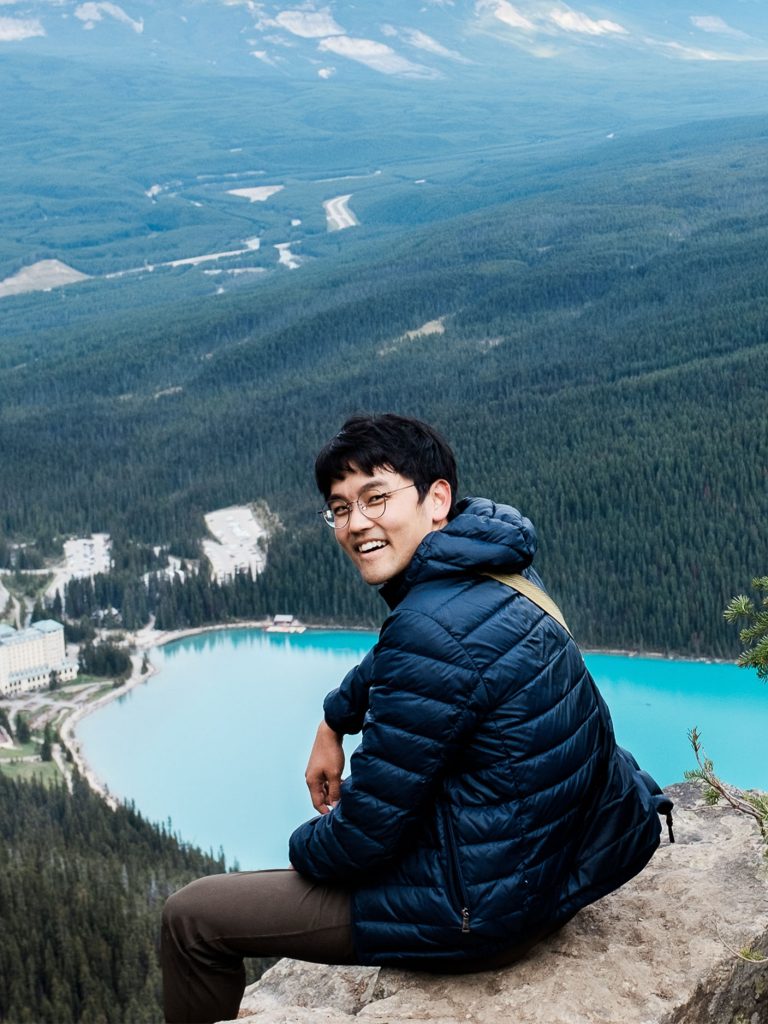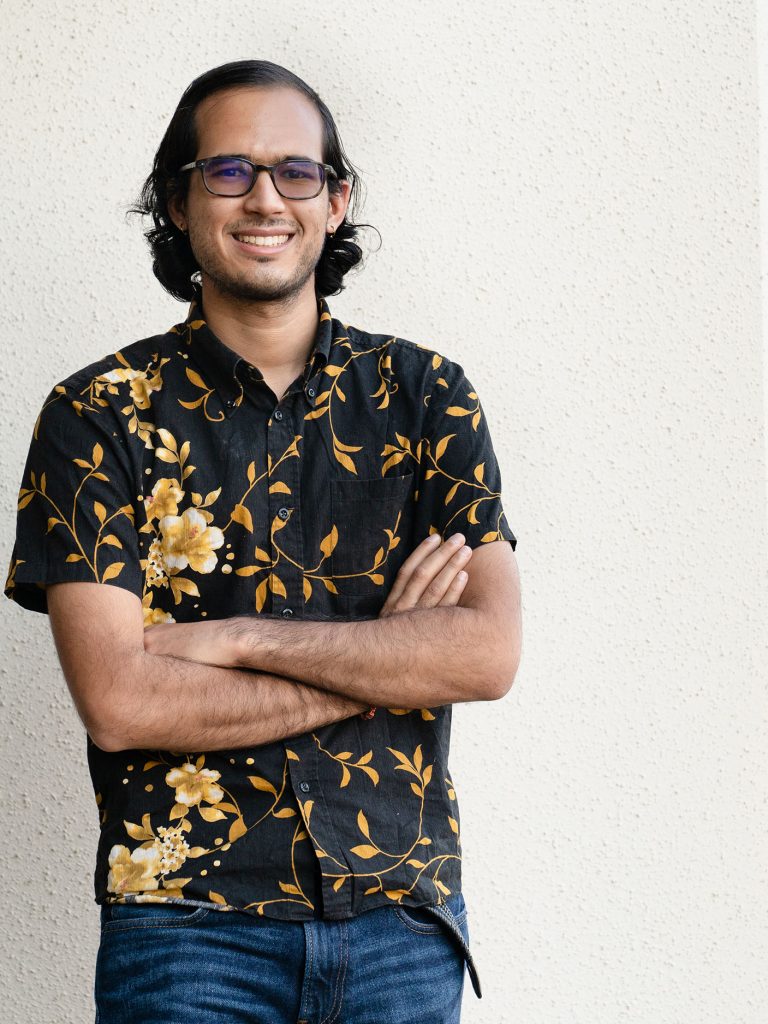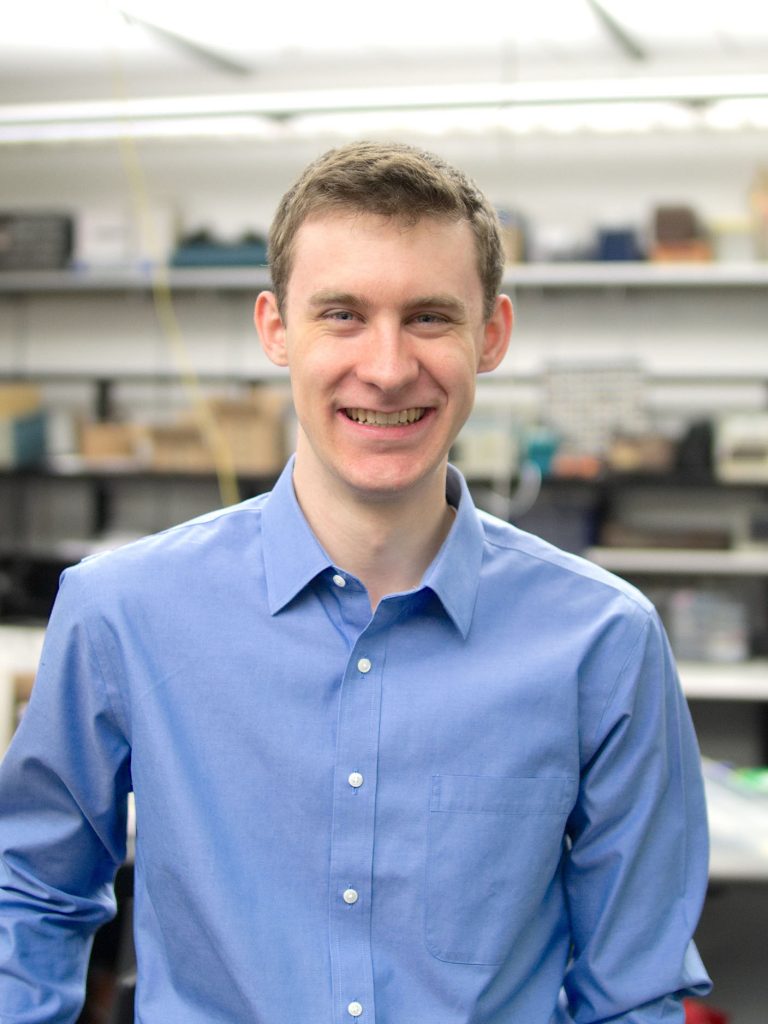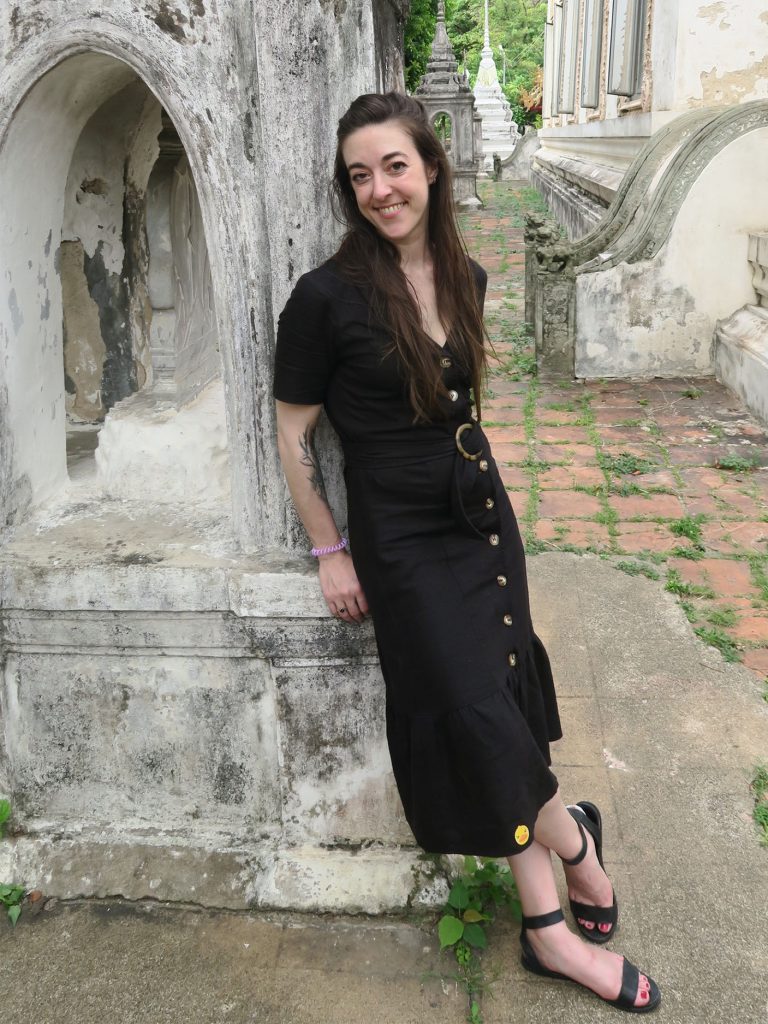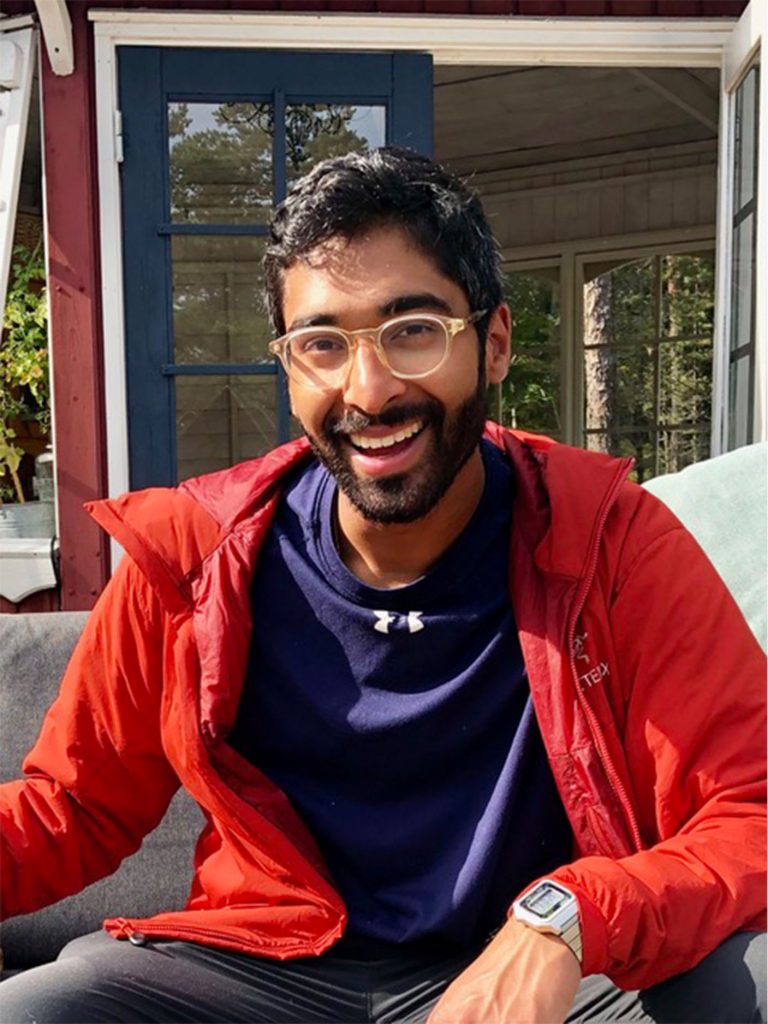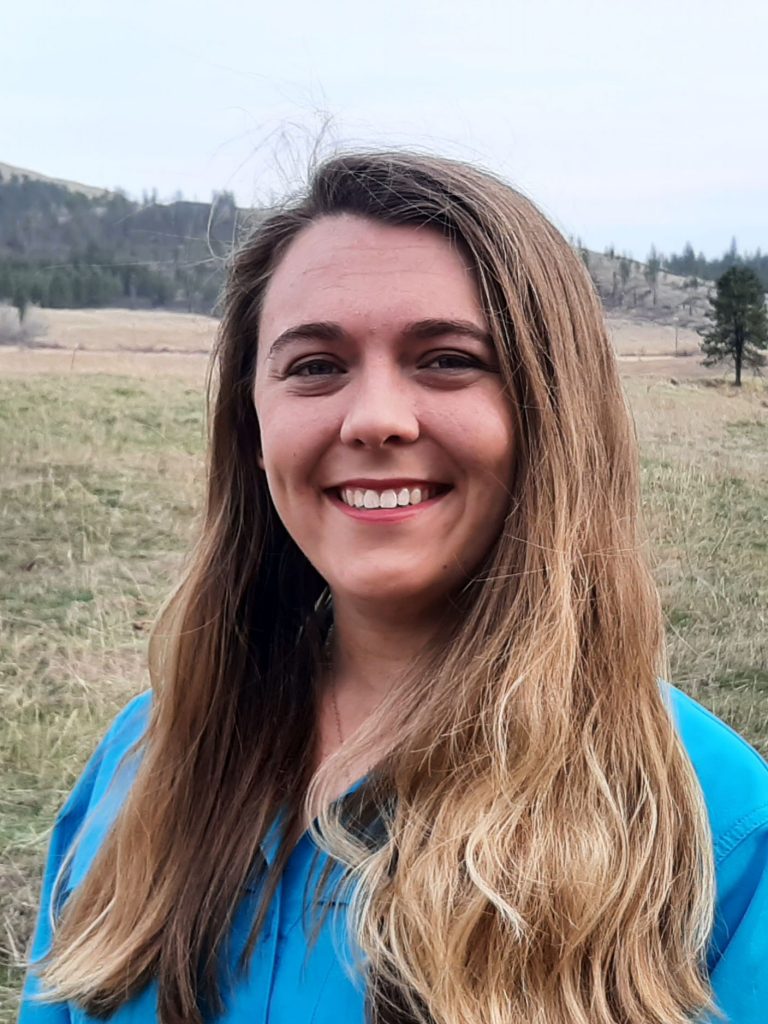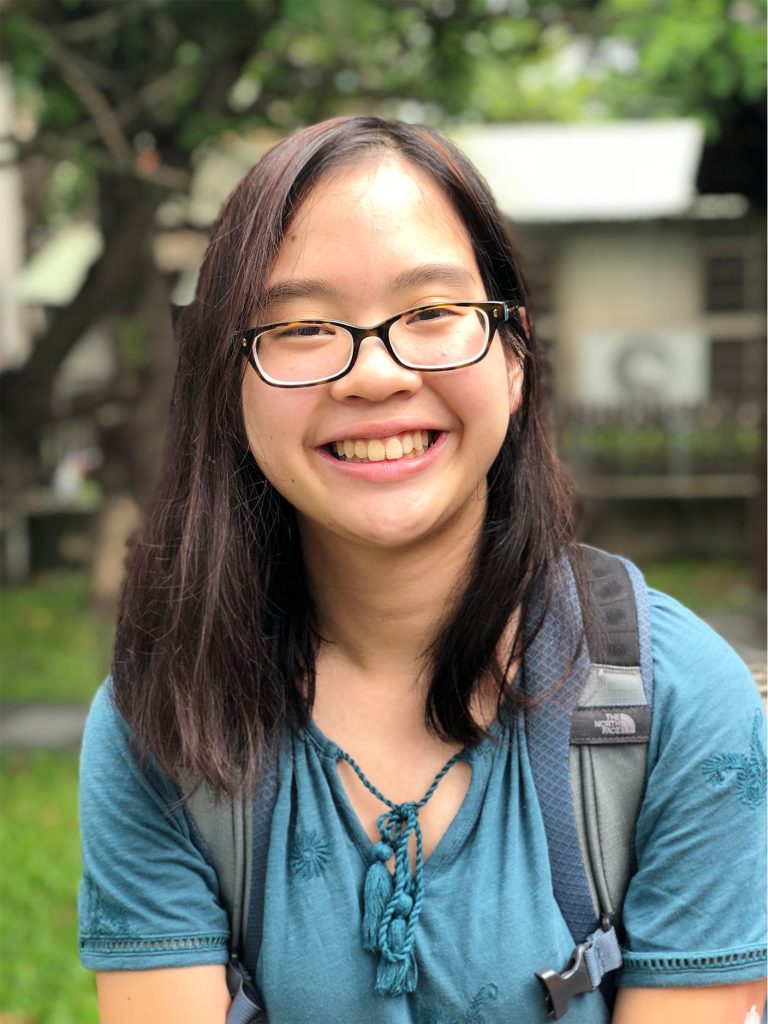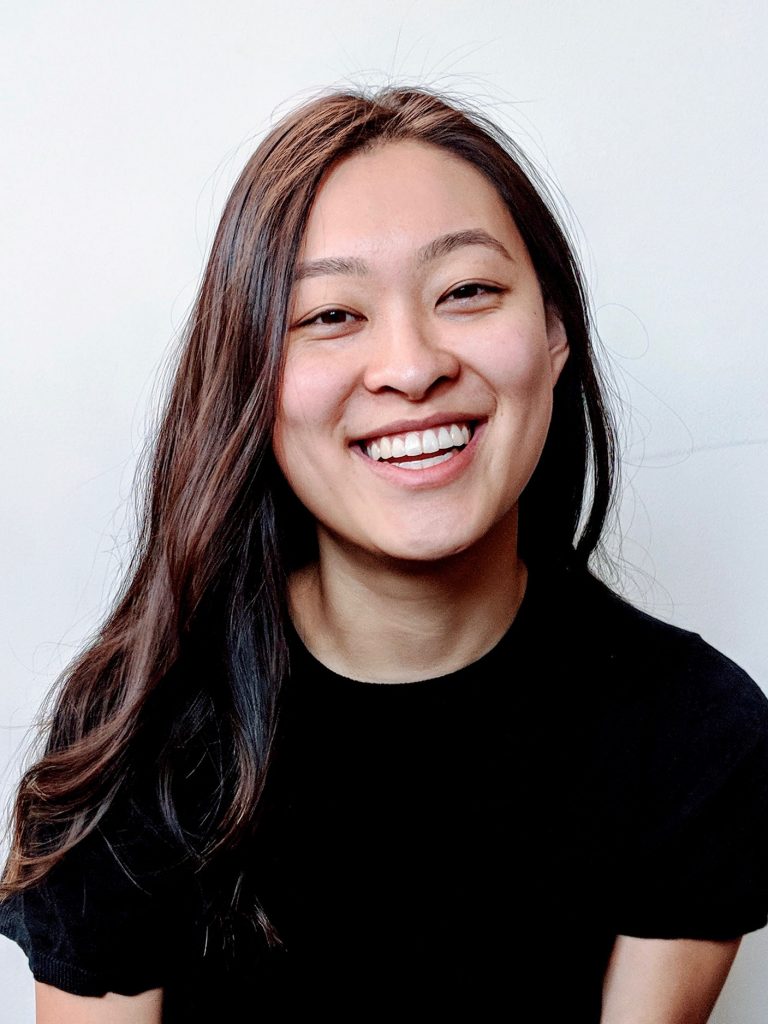Ten Allen School students earned recognition from the National Science Foundation (NSF) as part of its latest round of Graduate Research Fellowship Program (GRFP) awards, which honor outstanding students who are pursuing full-time research-based degrees with the potential to produce innovative contributions in science and engineering.
Since 1952, this prestigious competition has provided support for graduate education in NSF-supported STEM (science, technology, engineering and mathematics) disciplines. The Allen School honorees — eight Ph.D. students and two undergraduate students — were recognized in the “Comp/IS/Engr” or other computing-related categories.
Kyle Christopher Wynn Johnson
Kyle Christopher Wynn Johnson, a first year Ph.D. student, earned a fellowship for his work with professor Shyam Gollakota in the Allen School’s Network and Mobile Systems Lab.
Johnson’s research focuses on structural properties in systems, like the bistability demonstrated in leaf-out origami, to create low-power and small-scale robots optimized for resource constrained applications. He utilizes various reinforcement learning algorithms to simulate the locomotion of structures in open-source physics engines to discover energy-efficient control systems for structures with complex energy landscapes. He aims to create battery-less micro robots that are designed to operate autonomously for prolonged periods of time, be quickly self-adapting and be implementable as the sensory notes in a swarm algorithm. Origami robots have potential applications in many environments requiring both low-power and small-scaled devices, like in the deployment of space rovers for interplanetary exploration.
Maruchi Kim
Second year Ph.D. student Maruchi Kim, who also works with Gollakota, received a fellowship for his research at the intersection of human-computer interaction (HCI) and wireless audio systems.
Kim’s work aims to take audio technology beyond noise-canceling and transparency, and expand upon existing hearing aids and earbuds to augment the sound environment. His goal is to interactively attenuate, amplify and decorate specific sound sources of his own choosing, using noninvasive neural signals. Kim will integrate ideas from neural engineering and deep learning and embed them into a novel wireless audio system capable of user-selectable audio amplification and attenuation. This technology could ultimately make its way into hearing aids and audio wearables to give people a more enriched hearing experience via a natural amplification of sounds that they want to hear.
Amal Nanavati
Amal Nanavati, a second year Ph.D. student, was recognized with a fellowship for his work with professors Maya Cakmak and Siddhartha Srinivasa in the Human-Centered Robotics Lab and the Personal Robotics Lab.
Nanavati is interested in developing models of human behavior and integrating them into robot planning to enable smooth human-robot collaboration. As robots are increasingly deployed in dynamic and uncertain human environments, situations will arise that they are not equipped to handle. For example, consider an office robot. Due to limitations in hardware and computation, environmental uncertainties, or a lack of domain knowledge, the robot might get lost, get knocked over, etc. Nanavanti’s aim is to develop mathematical models and frameworks that enable a robot to effectively ask for help. This would require it to reason about humans’ help-giving behaviors and its own capacities to autonomously determine who, when and how to ask for help. Doing so will enable robots to adapt to dynamic and unexpected scenarios by switching between being autonomous and collaborative.
Parker Ruth
Fellowship winner Parker Ruth is an undergraduate student working with professor Shwetak Patel in the Ubiquitous Computing Lab (UbiComp).
Ruth explores applications of computing tools to improve the quality and accessibility of health care. He aims to apply computer and engineering principles to expand access to ischemic stroke screening, specifically carotid artery stenosis and systemic embolism. Ruth will accurately extract pulse waveforms from smartphone video of the face and develop computer vision and signal processing advancements, building algorithms to compute pulse onset and peak delay for variable heart rate and noisy signals. He will also build a wearable ultrasound sensor that will require high precision timing, safe power management and embedded processing. After graduating this June with a degree in computer engineering and bioengineering, Ruth will enter the computer science Ph.D. program at Stanford University in the fall.
Gabrielle Strandquist
Second year Ph.D. student Gabrielle Strandquist earned a fellowship while working with professors Rajesh Rao and Bingni Brunton in the Center for Neurotechnology.
Strandquist’s research is in analyzing electrocorticography (ECoG) recordings of natural behaviors. These recordings can be used in neural decoding, which can enable brain computer interfaces to restore critical functions such as communication and mobility to people with neurological diseases. Strandquist found that while state-of-the-art neural decoders have significant potential, they are primarily tested on clean data obtained in controlled laboratory conditions. In reality, neural activity in freely-behaving humans is unstructured and non-stationary over time, which can impede brain computer interfaces from being deployed for use outside the lab. Her aim is to design a pipeline for real-time neural decoding of natural human behaviors from unstructured data that is viable for long-term use.
Ethan Weinberger
Ethan Weinberger received a fellowship for his research with professor Su-In Lee as a second year Ph.D. student in the Artificial Intelligence for Medical Science (AIMS) Lab.
Weinberger’s work is at the intersection of machine learning and medicine. Single cell RNA sequencing (scRNA-seq) technologies offer an unprecedented opportunity to effectively characterize cellular level heterogeneity in health and disease, thereby opening a new avenue to gain insights into poorly understood diseases such as Alzheimer’s. Unfortunately, the high-dimensional nature of scRNA-seq data makes artificial intelligence (AI) models trained on it prone to overfitting, which can lead to spurious, unreproducible findings. To solve this, Weinberger is working on an AI framework called RISE (robust, interpretable single-cell embeddings). Once trained, RISE models can be used off-the-shelf by non-AI experts for arbitrary downstream tasks.
Ishan Chatterjee
Second year Ph.D. student Ishan Chatterjee received an honorable mention from the NSF recognizing his work bridging hardware and HCI with Patel in the UbiComp Lab.
Chatterjee focuses on interface and sensing technologies to unlock smarter, more natural or more efficient experiences. For instance, in the case of frontline workers whose workflows are inherently hands-on and spatial rather than desk-based, mixed reality (MR) computing interfaces can help meet their needs. His goal is to use them to make the workflows of frontline workers more productive, more intuitive and more collaborative. His aim is to employ human-centered design processes to address frontline worker scenarios in design and manufacturing and generalize the approach through low-code authoring tools to reduce the barrier to creating MR applications. Chatterjee is also developing lightweight sensor systems and technologies to use in hands-on and social contexts for workers in people-facing roles.
Alyssa Marie La Fleur
Alyssa Marie La Fleur, a second year Ph.D. student earned an honorable mention for her work with professor Georg Seelig in the Seelig Lab for Synthetic Biology.
La Fleur’s research focuses on learning to predict mutants that can disrupt protein-protein interactions (PPIs), which is an important step towards identifying potential pathogenic variants in the human genome, to advance our understanding of disease such as cancer and improve the well-being of individuals and society. Variation in genetic coding sequences can result in missense mutations in protein amino acids, potentially disrupting PPIs and hindering or destroying normal protein functions. Le Fleur has found current deep learning models perform poorly when predicting PPI disruptive missense mutations from non-disruptive mutations. She aims to develop surface feature input PPI models for predicting human protein interactions using available interactome scale datasets such as the Human Reference Interactome (HuRI).
Millicent Li
Undergraduate Millicent Li received an honorable mention for her work with Patel in the UbiComp Lab on tools to support mental health.
Li’s research encompasses the realm of HCI, mobile computing and natural language processing. Her goal is to make inferences about an individual’s stress level by applying NLP and speech processing techniques to predict stress in day-to-day conversational settings. Li plans to develop a framework for predicting stress and analyze the efficacy of NLP paired with speech processing for the task in order to create wearables for quick mental health analysis. She hopes that the project will help shape future research into interdisciplinary approaches for smartphone sensing in large-scale mental health analysis for diverse populations. After graduation, she will work as an AI Resident at Facebook AI Research before starting her Ph.D. in computer science at Northeastern University in fall 2022.
Miranda Wei
Miranda Wei, a second year Ph.D. student was recognized with an honorable mention for her work with professors Tadayoshi Kohno and Franziska Roesner in the Security and Privacy Research Lab.
Wei’s research focuses on usability of computer security and privacy (S&P). She is investigating the role gender plays in how people conceptualize S&P measures, particularly when it comes to everyday behaviors like avoiding scams, creating passwords and sharing information on social media. By analyzing stereotyped themes present in the literature, as well as empirically measuring gender stereotypes in the field, she will identify gendered differences in S&P knowledge, behaviors or threat models. This work combined with her prior research into systemic forces in other contexts — individuals reusing the same passwords for online accounts, and their privacy helplessness in the face of massive online data collection — will further her goal of equity in security and privacy and develop a user-empowering approach for conducting and sharing her research.
Recent Allen School bachelor’s alumni Siena Dumas Ang (B.S.,’17), Belinda Zou Li (B.S.,’19), Jenny Liang (B.S., ’21) and Harrison Kwik (B.S.,’18) also earned fellowships. Ang, currently a second year Ph.D. student at Princeton University, earned a fellowship in the “Life Sciences” category for her work in computational biology. She previously worked with professor Hannaneh Hajishirzi in AI before focusing on DNA data storage with Microsoft and the Molecular Information Systems Lab. Li, a first year Ph.D. student at Massachusetts Institute of Technology, previously worked with professor Luke Zettlemoyer in NLP. Liang, who will be a Ph.D. student at Carnegie Mellon University in the fall, worked with professor Amy Ko in the Code and Cognition Lab, as did fellow honoree Kwik, who is currently a second year Ph.D. student in the Technology and Social Behavior program at Northwestern University. Kwik earned a fellowship in the “STEM Education and Learning Research” category.
Allen School alumni Ben Evans (B.S.,’18, M.S.,’19) and Spencer Peters (B.S.,’19) received honorable mentions. Evans worked with professor Sham Kakade and Ph.D. student Aravind Rajeswaran on an off-policy reinforcement algorithm for machine learning. He is now a first year Ph.D. student at New York University. Peters previously worked on improving phasing algorithms with professor Walter Ruzzo and is currently a second year Ph.D. student at Cornell University.
In addition to the Allen School honorees, students from other UW departments were also recognized by the NSF in the “Comp/IS/Engr” category. In the Department of Human Centered Design & Engineering, Ph.D. students Neille-Anne Herrera Tan, Emma Jean McDonald and Jay Little Cunningham received fellowships, as well as iSchool Ph.D. students Nicole Simone Kuhn and Anastasia Schaadhart and University of Washington Tacoma Ph.D. student Kyle Bittner. Akeiylah Sammon DeWitt in HCDE was recognized with an honorable mention.
Congratulations to all of this year’s honorees!


